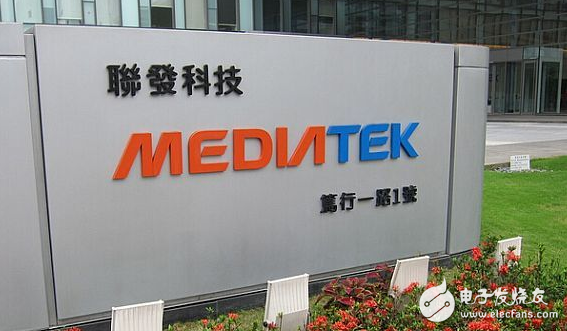MediaTek develops IoT/VR to get rid of the dependence on mobile phone chips
Affected by the continued slowdown in global mobile phone market demand, the days of mobile phone chip manufacturers have not been better since last year, and the price of chips this year has been falling.
In order to achieve the three goals of revenue, mobile phone chip shipments and market share, MediaTek also had to continue to lower the gross profit margin in exchange for scale. The latest financial report shows that MediaTek's gross profit margin hit a new low of 38.5%. At this point, the trend of Qualcomm, MediaTek and Spreadtrum's gross profit margins have fallen below 50%, 40%, and 30%, respectively, and it is a foregone conclusion. There is even pressure to continue to fall.
MediaTek’s first quarter 2016 financial results showed that its revenue was NT$55.91 billion, down 9.4% from the fourth quarter of 2015. The overall performance was lower than expected.
"The two years are the most competitive period in the smart phone industry. In the case of the market becoming saturated, the competition will pull down the gross profit margin and the net profit at the same time. This is something that cannot be avoided." Recently, I received the interface news and In an exclusive interview with other media, Zhu Shangzu, executive vice president and co-chief operating officer of MediaTek, said.

He also believes that MediaTek's performance will still experience a small decline in the peak season of the third quarter, but will then bottom out and slowly pick up: "The feeling of the mobile phone market this year is better than expected last year, we think this is because of the whole of China. The market has entered a situation of a lot of changes."
In order to increase revenue and chip shipments, MediaTek is also working on overseas markets. According to Zhu Shangzu, MediaTek's share in India, Vietnam, Thailand, Malaysia and other markets is increasing. He believes that there are still many opportunities in these emerging markets. For example, in the first half of 2016, the overall stock of smart machines in Southeast Asia and India increased by 10%, and the proportion of 4G mobile phones increased from 10% to 30%.
Zhu Shangzu revealed that in the second half of the year, MediaTek mobile phone chips will continue the product line in the first half of the year, and a new generation of products will be released at the end of the year.
In the case of bottlenecks in the development of mobile phone services, new areas such as the Internet of Things and VR have become the breakthrough for business growth. Recently, MediaTek announced plans to invest US$6.18 billion over the next five years to develop chips in seven new areas including Internet of Things, 5G, AR/VR, Artificial Intelligence, Industry 4.0, Internet of Vehicles, Software & Internet Service, and get rid of excessive dependence on mobile phone chips. problem.
Zhu Shangzu believes that in these seven areas, the Internet of Things and VR will be the first to bring growth opportunities to MediaTek, while the development opportunities in the areas of Internet of Vehicles, 5G, and Industry 4.0 will appear later.
"Since the establishment of the Internet of Things department last year, MediaTek has now over 100 employees and has deployed a lot of manpower support from other departments." Yang Yuquan, deputy general manager of MediaTek IoT Business Unit, told the interface reporter.
According to Yang Yuquan, MediaTek believes that the market capacity of the Internet of Things will surpass that of smart phones. The Internet of Things is a diversified market. The product form is complex and diverse. The business model is completely different from smart phones, and the Internet of Things is still in the growth stage. In the case of a single manufacturer, everyone has the opportunity to participate.
“MediaTek is currently focusing on the four Internet of Things areas – smart wear, smart home, smart travel (tracking and positioning) and smart management (M2M). While maintaining the flexibility of outward expansion, seeking vertical market segments and emerging areas. Market opportunities, such as drones." Yang Yuquan said.
He believes that China is the most important market for the Internet of Things. MediaTek has achieved a good market share in the domestic smart wearable market, especially the children's smart watch bracelet with tracking and positioning functions, with BBK, Xiaomi, 360, Huawei glory. First-tier manufacturers have cooperated to launch overheated products.
This year, MediaTek and China Mobile China Mobile Internet of Things Co., Ltd. launched in-depth cooperation in the field of Internet of Things. The world's first IoT chip platform MT2503, which integrates 2G baseband and global satellite navigation system (GNSS), was successfully applied by China Mobile's IoT company to DMU products of China Mobile's new generation of driving guard terminals. It is expected that China Mobile will also have a number of IoT products with MT2503 listed in the market.
In the VR field, MediaTek believes that the real opportunity of VR is not on the mobile phone. The structure of the mobile phone itself and the power consumption limit the application of VR.
“The experience of Samsung Gear is a bit too rough. So we will focus on improving the experience and upgrading the overall graphics operation to a very good level. It is expected that this year will continue to focus on the experimental phase, starting from next year and the following year. Multiple VR-related chip products have emerged," Zhu Shangzu said.
Wireless Vacuum Cleaner,Best Wireless Vacuum Cleaner,Wireless Car Vacuum Cleaner,Best Vacuum Cleaner Wireless
Ningbo ATAP Electric Appliance Co.,Ltd , https://www.atap-airfryer.com